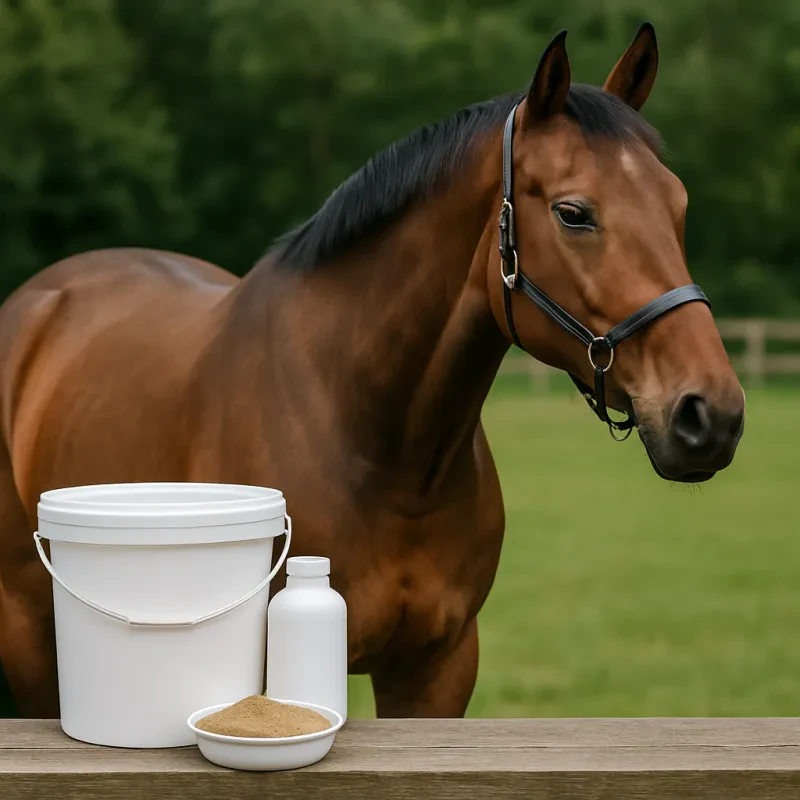When it comes to caring for your horse in an eco-friendly manner, there are several essential steps you can take to ensure you are doing your part for the environment. By following these simple guidelines, you can help reduce your horse's environmental impact and promote sustainability in your grooming routine.
One of the first steps you can take towards eco-friendly grooming is to use natural, biodegradable grooming products. Many commercial grooming products contain harsh chemicals that can be harmful to the environment when washed down the drain. Opting for natural products made from ingredients such as coconut oil, aloe vera, and essential oils can help reduce your horse's exposure to harmful chemicals and minimize your carbon footprint.
Another important aspect of eco-friendly grooming is water conservation. While it's important to keep your horse clean and healthy, it's also essential to be mindful of water usage. One way to reduce water waste during grooming sessions is to use a bucket and sponge instead of a hose. This not only helps conserve water but also allows you to control the amount of water used, resulting in a more efficient grooming process.
Finally, incorporating sustainable grooming practices such as composting manure and recycling grooming tools can further reduce your horse's environmental impact. By composting manure, you can turn waste into nutrient-rich soil that can be used in your garden or donated to local farmers. Additionally, investing in durable grooming tools made from recycled materials can help reduce waste and minimize your use of disposable products.
Natural Remedies for Common Horse Ailments
For mild cases of colic, try giving your horse some dried chamomile or peppermint leaves to help soothe their stomach and alleviate discomfort. Be sure to monitor your horse closely and consult with a veterinarian if symptoms persist or worsen.
Hoof Abscess:
Soaking the affected hoof in a warm Epsom salt bath can help draw out infection and promote healing. You can also apply a poultice made of clay and Epsom salt to the hoof and wrap with a bandage to keep it in place.
Sweet Itch:
For horses suffering from sweet itch, a common allergic reaction to insect bites, try applying a mixture of apple cider vinegar and water to affected areas to help soothe itching and reduce inflammation. You can also use a natural insect repellent containing essential oils to prevent further bites.
Respiratory Issues:
Eucalyptus oil can be added to a warm mist humidifier or diffuser in the horse's stall to help alleviate congestion and promote easier breathing. Alternatively, hanging bundles of dried eucalyptus or peppermint leaves in the stable can also provide respiratory relief for your horse.
Sustainable Feeding Practices for Your Horse
Horses are gentle giants that require proper care and attention to thrive. When it comes to feeding your horse, opting for sustainable practices can not only benefit the environment but also improve your horse's health and well-being.
One way to practice sustainable feeding for your horse is by choosing locally sourced and organic feed options. By supporting local farms and avoiding feed that has been transported long distances, you can reduce your horse's carbon footprint. Additionally, organic feed options are free from harmful pesticides and chemicals, which can have negative impacts on your horse's health in the long run.
Another important aspect of sustainable feeding is to avoid overfeeding your horse. It's essential to provide your horse with a balanced diet based on their individual needs and activity level. Consult with a veterinarian or equine nutritionist to determine the appropriate portions and types of feed for your horse to prevent wastage and promote optimal health.
Incorporating pasture grazing into your horse's feeding routine is also a sustainable practice that allows your horse to roam freely and consume natural grasses. However, it's crucial to monitor your horse's grazing habits to prevent overgrazing and ensure the pasture remains healthy and sustainable for the long term.
Tips for Creating a Green-Friendly Barn Environment
Creating a green-friendly barn environment is not only beneficial for the environment, but also for the health and well-being of your horses. Here are some tips to help you create a more sustainable and eco-friendly barn:
1. Reduce, Reuse, Recycle: One of the easiest ways to create a green-friendly barn environment is to reduce waste by reusing and recycling as much as possible. Use reusable containers for storing horse feed and supplies, recycle paper and plastic products, and compost manure to create nutrient-rich soil for your garden.
2. Use Natural Cleaning Products: Chemical-based cleaning products can be harmful to both the environment and your horses. Opt for natural cleaning products, such as vinegar and baking soda, to clean stalls, tack, and other equipment. Not only are these products safer for the environment, but they are also more cost-effective.
3. Implement Water Conservation Practices: Water is a precious resource, so it's important to implement water conservation practices in your barn. Install rain barrels to collect runoff water for watering plants and cleaning, fix any leaks in water pipes and faucets, and encourage barn staff to be mindful of their water usage.
4. Switch to Energy-Efficient Lighting: Switching to energy-efficient lighting, such as LED bulbs, can help reduce your barn's energy consumption and lower your electricity bills. Consider installing motion sensor lights in common areas to further reduce energy waste when lights are not in use.
5. Plant a Green Roof or Living Wall: Planting a green roof or living wall on your barn can help improve air quality, reduce energy costs, and provide a natural habitat for birds and insects. Choose drought-resistant plants that require minimal maintenance to ensure the longevity of your green roof or living wall.


